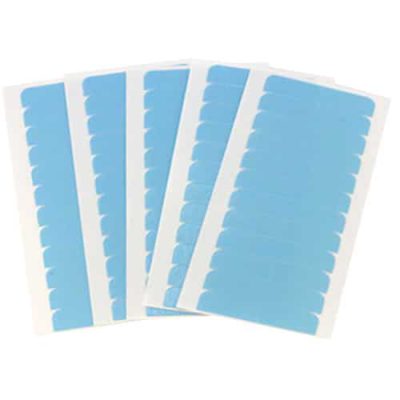

You’ll need to have a professional apply these for a seamless look. They last for 6-8 weeks, but the adhesive used can leave a sticky coating on the hair when removed. Tape-ins start at about $200 but can be as much as $1,000.They are best for medium and thick hair, which better supports the clips. They can be reapplied over and over and last for about one year, making them the most affordable type of hair extensions. So, how much do the different types of hair extensions cost? The price varies by type, so we’ll list the average cost for each one in order from least to most expensive. As your hair grows out, the attached beads will be further down the strand.

It’s helpful to go in to have the extensions moved closer to your roots every few weeks.
#Tape in extensions install
A professional will need to install and remove them for you. They last for 14-16 weeks, longer than many other types of extensions. No adhesive or heat is used for application, so they will not damage the hair like other types of extensions. The finished look with I-tip extensions is natural and almost undetectable. Silicone inside the bead prevents it from sliding down the hair shaft. The bead slides into the hair then, a plier tool is used to securely close the bead around the hair. A micro silicone bead is attached to small sections of the natural hair using a looping device. I-tip hair extensions are small sections of hair strands that are installed just like microlinks. This method is ideal for someone with very thin or fine hair where the braids won’t be strong enough to securely sew the weave in. Once the hair is braided, the weft section is woven into the braid for a secure and strong installation.īraidless sew-ins (also called flat tracks or skip tracks) involve applying tiny beads, usually coated with silicone to prevent slippage, to the natural hair and using those to attach the sew-in wefts. This helps them seamlessly blend with the natural hair. Small braids keep the extension wefts (strands of hair sewn to a very thin piece of cloth) laying flat. Some of the hair is left out of the braids to cover the sewn-in wefts of hair once installation is complete. Braid down sew-ins involve braiding the natural hair tight to the scalp. They last about 6 to 8 weeks and should be installed and removed by a professional. Or, they can be added using small beads that attach to the hair. Sew-ins can be braided into your natural hair. Sew-in hair extensions might sound a little scary, but they’re one of the most popular and long-lasting types of extensions. After this, we’ll look at the cost of each different type so you can compare. From clip-ins to sew-ins, here are the types of hair extensions you’ll be able to choose from.

There are several different types of hair extensions, and each one has its pros and cons. They’re much more affordable than human hair, but won’t look as natural and have less versatility for styling. Synthetic hair extensions cost anywhere from $50 to $85. Even too much direct sunlight can damage synthetic extensions. You can’t use heat to style synthetic hair (flat iron, curling iron or wand, blow dry, etc.) because heat will melt or damage the synthetic fibers. Hair extensions made with synthetic hair have a risk of looking “fake.” You can’t color synthetic hair, because the chemicals in hair color destroy synthetic hair. It’s designed to look like human hair, but the look is not quite perfect. It’s made out of a blend of different fibers and plastics. Synthetic hair is cheaper because there is no human hair in it. From the type of hair used, type of extensions, and maintenance appointments, you’ll be able to compare the prices and see which type of extension makes the most sense for you. In this guide, we’ll look at what factors the cost of getting hair extensions. Using human vs synthetic hair greatly affects the cost.



 0 kommentar(er)
0 kommentar(er)
